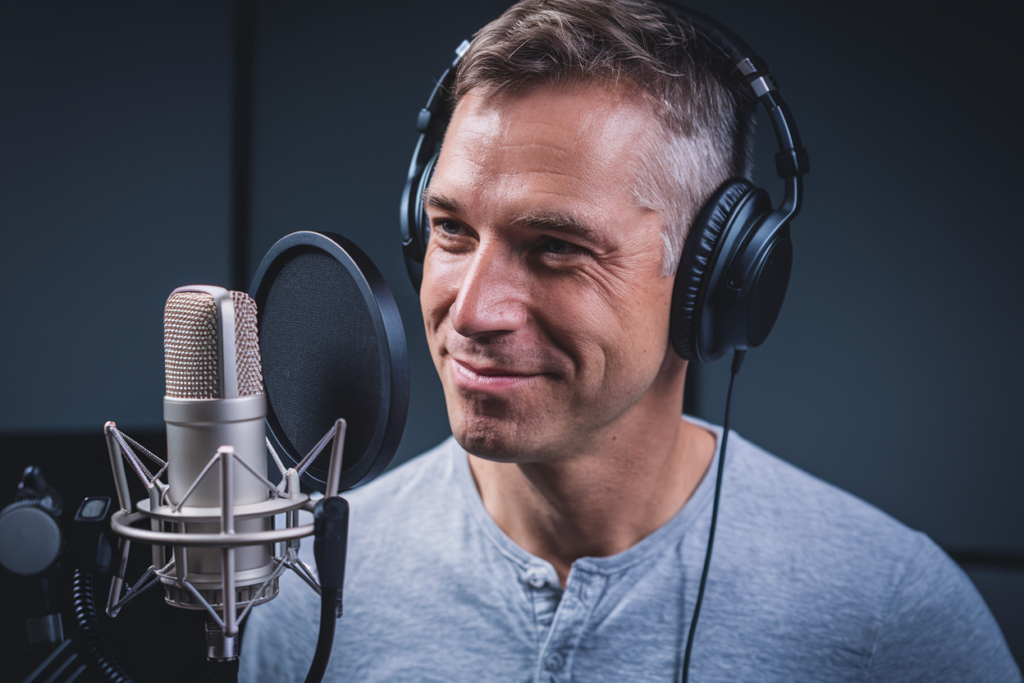In the vibrant tapestry of UK culture, regional dialects play a crucial role in shaping identity and communication. When it comes to voiceovers, these unique accents can significantly influence how messages are received by audiences. Understanding the nuances of various dialects not only enhances authenticity but also builds a deeper connection with listeners.
As you delve into the world of voiceovers, you’ll discover that embracing regional differences can elevate your projects. Whether you’re aiming for a local feel or seeking to reach broader demographics, knowing how dialects impact perception is key. Let’s explore how these rich linguistic variations affect voiceover work and why they matter more than ever in today’s diverse media landscape.
Key Takeaways
- Regional Dialects Enhance Authenticity: Embracing UK regional dialects in voiceovers adds authenticity and fosters a deeper connection with diverse audiences.
- Influence on Audience Perception: Familiar accents can evoke trust and relatability, making content more memorable and impactful for listeners.
- Diverse Voiceover Styles: Different dialects lead to unique voiceover styles, allowing actors to tailor their performances to align with cultural nuances and regional preferences.
- Historical Context Matters: Understanding the historical evolution of regional dialects can enrich voiceover performances by incorporating culturally relevant elements that engage viewers.
- Successful Case Studies: Real-world examples demonstrate the effectiveness of using specific regional accents in media projects, enhancing audience engagement and appeal.
- Challenges for Voice Artists: Mastering varied dialects poses challenges, including balancing authenticity with client expectations; understanding these hurdles is crucial for selecting suitable voice talent.
Understanding UK Regional Dialects
UK regional dialects represent a rich tapestry of accents and speech patterns that greatly influence voiceovers. Grasping these dialects enhances your projects, allowing for authentic connections with diverse audiences.
Definition and Characteristics
UK regional dialects encompass distinct variations in pronunciation, vocabulary, and grammar across different areas. Each accent carries unique phonetic features; for instance, the Northern accent often emphasizes short vowel sounds while the Southern accent may elongate them. These characteristics contribute to how listeners perceive messages delivered by voice artists. A strong local accent can evoke familiarity and trust, making it vital for voice actors to adapt their delivery according to audience expectations.
Historical Context
Understanding the historical context of UK regional dialects enriches your approach to voiceovers. The evolution of these dialects stems from centuries of cultural influences, including migration patterns, trade routes, and social changes. For example, the Cockney accent evolved in East London as a reflection of working-class identity during industrial growth. Such historical nuances deepen audience engagement when voice talents incorporate regionally specific elements into their performances. Recognizing this backdrop allows you to select appropriate voiceover styles that resonate authentically with targeted demographics.
The Importance of Voiceovers
Voiceovers play a crucial role in media production, significantly impacting how content is received by audiences. They add depth and personality to various projects, including commercials, animations, documentaries, and e-learning materials.
Role in Media Production
Voiceovers enhance storytelling by providing emotional resonance and clarity. Voice talent brings scripts to life through engaging delivery that reflects the intended tone and style. By utilizing diverse UK regional dialects, voice actors can tailor their performances to match specific demographics or markets. This approach ensures that the content resonates with local audiences while maintaining authenticity.
Influence on Audience Perception
Audience perception hinges heavily on the voice used in a project. A familiar accent can evoke feelings of trust and relatability among listeners. When voice artists employ regional dialects in their performances, they connect more deeply with viewers or listeners who recognize those accents as part of their own culture. This connection cultivates a sense of belonging and enhances overall engagement with the material, making it memorable and impactful.
UK Regional Dialects Impact on Voiceovers
UK regional dialects significantly influence voiceovers, shaping not only the delivery but also audience perception. Unique accents enhance authenticity and create deeper connections with listeners.
Variations in Voiceover Styles
Variations in dialects lead to distinct voiceover styles that cater to regional preferences. For instance, a Northern accent might convey warmth and friendliness, while a Southern accent may project sophistication and professionalism. Different regions exhibit unique pronunciation patterns, vocabulary choices, and intonations that can affect how messages resonate. Voice actors must adapt their techniques accordingly to ensure their performances align with the cultural nuances of specific audiences.
Audience Connection and Engagement
Audience connection hinges on familiarity with local accents. A well-executed regional accent fosters trust and relatability among listeners. When you use a voice artist who understands these subtleties, your projects gain emotional depth, enhancing engagement. Strong local accents can evoke nostalgia or pride, making content memorable. By employing diverse UK regional dialects in your voiceovers, you tap into essential cultural elements that elevate your message’s impact across various media formats.
Case Studies
Examining real-world applications of UK regional dialects in voiceovers reveals their profound impact on audience engagement and perception. Understanding these case studies can guide your approach when selecting voice talent for various projects.
Successful Examples
Numerous media projects successfully integrate UK regional dialects to enhance authenticity. For instance, a popular animated series featured characters voiced by actors with distinct Northern accents. This choice not only resonated with local audiences but also added a layer of charm that contributed to the show’s overall appeal.
Another effective application involved a documentary showcasing life in rural England. Utilizing voice artists from the region helped convey genuine stories and experiences, fostering a deeper connection with viewers. Such examples highlight how specific accents and dialects elevate narratives, making them relatable and engaging for targeted demographics.
Challenges Faced by Voice Artists
While employing regional dialects offers numerous advantages, it also presents challenges for voice artists. One significant hurdle involves mastering the nuances of different accents without veering into caricature or misrepresentation. This balance is crucial to maintain credibility and respect towards cultural identities.
Additionally, some clients may prefer neutral accents, which can limit opportunities for voice actors specializing in regional dialects. Adapting performances while preserving authenticity requires skillful navigation between client expectations and personal expertise.
Understanding these challenges equips you to make informed decisions when selecting voiceover talent for your projects, ensuring successful outcomes that resonate with your audience.
Conclusion
Embracing UK regional dialects in voiceovers can significantly enhance your projects. By tapping into these unique accents, you create a stronger connection with your audience. This authenticity fosters trust and relatability, making the content more memorable.
Understanding the nuances of each dialect allows you to tailor your delivery for specific demographics. Whether you’re working on an animation or a documentary, leveraging local accents adds depth and emotional resonance to your storytelling.
As you navigate the challenges associated with regional variations, keep in mind that the right accent can elevate your message and engage listeners effectively. Prioritizing authenticity will set your voiceover work apart in today’s diverse media landscape.
Frequently Asked Questions
What are regional dialects in the UK?
Regional dialects in the UK refer to distinct variations of language that differ in pronunciation, vocabulary, and grammar based on geographic areas. They reflect local culture and history, adding richness to communication.
Why are regional dialects important for voiceovers?
Regional dialects enhance authenticity in voiceovers by creating a stronger connection with audiences. Unique accents can evoke familiarity and trust, making content more relatable and engaging for specific demographics.
How do UK regional dialects affect audience perception?
Accents influence how listeners perceive messages. Strong local accents can create feelings of warmth and trust, while unfamiliar ones may lead to distance or skepticism. Understanding this helps tailor voiceover performances effectively.
What challenges do voice artists face with dialects?
Voice artists must master the nuances of various dialects without misrepresentation. Additionally, some clients prefer neutral accents over regional ones, which can complicate casting decisions for projects aiming for authenticity.
Can you provide examples of successful use of regional dialects in media?
Yes! For instance, an animated series featuring characters with Northern accents increased relatability among viewers from that region. Similarly, a documentary showcasing rural England’s life used regional dialects to enhance authenticity and engagement.






